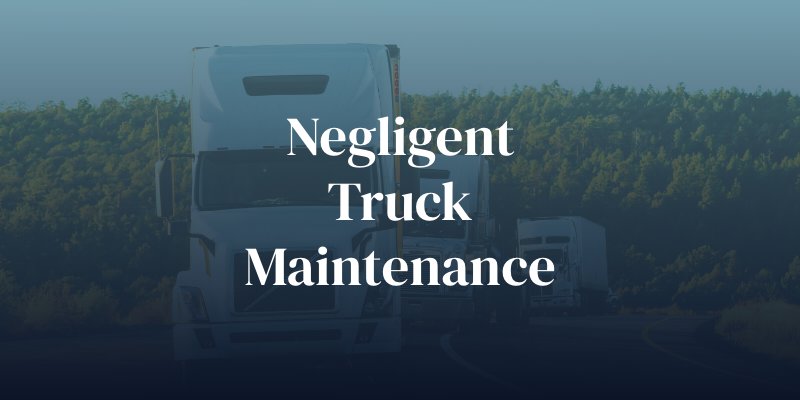Commercial trucks contain thousands of interconnected parts working in harmony—brakes, tires, steering systems, lights, and countless mechanical components that must function flawlessly to keep everyone safe. Each of these systems creates a potential point of failure, and when trucking companies cut corners to save money, the consequences can be catastrophic. If you were injured in a Kansas City negligent truck maintenance accident, here is what you need to know.

Common Types of Truck Maintenance Failures
When trucking companies fail to follow proper maintenance protocols, they put everyone at risk. Truck equipment failures often occur gradually over time, making them entirely preventable with proper attention and care.
The most common maintenance-related failures include:
- Brake system failures due to worn pads, defective brake lines, or improperly adjusted brakes
- Tire blowouts caused by worn treads, improper inflation, or failure to replace aging tires
- Steering system failures resulting from worn components or inadequate lubrication
- Lighting and electrical system failures that reduce visibility and communication with other drivers
- Engine problems stemming from neglected oil changes, coolant system failures, or ignored warning signs
Who Is Liable for Maintenance-Related Accidents?
Liability refers to legal responsibility for damages caused by negligent actions, and establishing liability is one of the most important steps to secure compensation after a truck accident. The party responsible for the negligent maintenance must pay for the damages you sustained in the crash. In maintenance-related cases, multiple parties may share responsibility depending on the circumstances.
The trucking company typically bears primary responsibility for making sure their fleet receives proper maintenance. However, if the company leases trucks, the leasing company may be liable for maintenance failures. Independent contractors who own their trucks are responsible for their own maintenance and may be liable for accidents, but the companies that hire them may still face liability if they knew or should have known about maintenance issues. Additionally, maintenance contractors and parts manufacturers can be held liable when their negligence or defective products contribute to accidents.
How to Prove Negligent Truck Maintenance in Kansas City
To win a claim related to negligent truck maintenance, you need to present clear evidence that demonstrates how these failures caused your accident. Trucking companies are required to maintain certain records that you can leverage as evidence in your truck accident claim, such as:
- Maintenance logs and inspection reports that reveal patterns of neglect or deferred repairs
- Driver vehicle inspection reports documenting known defects or mechanical issues
- Repair invoices and work orders showing inadequate or incomplete maintenance
- Electronic logging device data capturing mechanical warnings or system failures before the crash
- Federal Motor Carrier Safety Administration records, which can reveal a history of compliance violations
Beyond this documentation, you can also leverage physical evidence and expert analysis. Photographs of failed components, preserved truck parts from the wreckage, and testimony from mechanics help establish the direct connection between maintenance negligence and your accident. Industry professionals can demonstrate how proper maintenance protocols would have prevented the crash, and accident reconstruction specialists can prove how the maintenance failure caused your injuries.
Begin Your Journey to Justice with Dollar, Burns, Becker, and Hershewe
When trucking companies prioritize profits over their maintenance duties, you deserve justice. Dollar, Burns, Becker, and Hershewe has the resources to investigate complex maintenance negligence cases, working with industry experts to prove how corner-cutting led to your injuries. Contact us at (816) 876-2600 for your free consultation and let our Kansas City truck accident lawyers fight for the compensation you need to move forward.